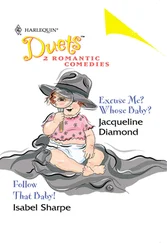She is just an innocent American tourist traveling abroad with friends, enjoying her hard-earned vacation. On the day in question, she wakes to the aroma of fresh coffee wafting up from the hotel kitchen. The geraniums in the window box are still dripping from a refreshing rain that passed through overnight. Now the sky is so clear that the light sparkling on the sea hurts her eyes.
She is certain she has come to the right place to relax. If she feels at all remorseful, it is because she has been drinking too much of the local wine and spending more than she can afford on clothes and souvenirs. Later in the week she plans to take the train into the nearby city and dutifully visit churches and museums, but today she wants to do nothing more strenuous than climb down the stone steps to the rocky cove, spread out a towel, and nap in the sun. In her determination to remain stress-free, she hasn’t read the news since she left home.
On one side of the village, a man named Mario is drawing a razor across his chin, while on the opposite side of the village, a man named Luca is bobbing a tea bag in hot water. Though the American woman has no reason to be interested in the men at this point, they are important to this story, and I should say something about them.
The two men are the same age and as boys had been classmates for a year, before Luca was sent off to boarding school. If Mario had let his beard grow, he would so resemble Luca that you might mistake them for brothers. That’s where the similarity ends.
Mario lives in a tidy apartment overlooking a rail crossing. He enjoys the jingle of warning bells that go off every time the gates are lowered, and then the metallic churning of the passing train. His father was a carpenter, and his mother worked as a seamstress. Mario was born in an isolated hamlet in the hills, where his family had moved after his aunt was named as a collaborator in the last war and forced to endure the gauntlet of public shaming that was typical in the months following the occupation. Mario himself had never served in the military. He joined the police force as soon as he was old enough and worked his way up the ranks to the position of captain. At the age of forty-two, he finally proposed to a woman after learning that she was pregnant with his child, but she turned him down. Though he hasn’t heard from her since she moved away from the village, he has no regrets. As he likes to say, it’s when a man marries that his troubles begin.
Luca lives in a villa perched on a high plateau terraced with private gardens overlooking the sea. A stretch of train tunnel runs beneath this portion of the village, and the rumble as the train emerges above ground sounds like distant thunder. The villa is filled with fine art, including a small unsigned oil portrait that is said to be by Rubens, and a set of sixteenth-century engravings by Cristofano Bertelli. Luca’s family is one of the richest in the region thanks to a great-grandfather who made a fortune in the sugar trade. Luca is lucky to be able to live off his inheritance and devote himself to a literary career that brings him personal satisfaction, despite the lack of public recognition. His wife, born and raised in London, works as a lawyer for an international trade corporation. They have two young children who attend the same Swiss boarding school where their father was educated, and his father before him.
Here we are, then, in a typical Mediterranean village, sometime between the end of the last world war and shortly before the next one begins. There’s no obvious reason to think trouble is imminent. In the eyes of an ordinary tourist, everything looks lovely: the colorful, lopsided buildings packed on hillsides above the sea, the slopes lined with abundant vineyards and olive groves, the flowery vines spilling over fences. How could anyone not be happy here?
Luca’s teacup rattles on the saucer as the train snakes deep inside the earth below his villa. He tosses his tea bag into a garbage pail and goes on writing.
On the other side of the village, the warning bells at the railway crossing start jingling. When the train roars between the gates, the engineer lets out an abrupt warning toot, ignoring the local prohibition against unnecessary disturbances and causing Mario to flinch and nick himself with the razor. He presses a tab of toilet paper against his chin to stop the bleeding.
In the village center, the cobbled streets begin to pulse with life: a woman pushes a baby carriage along the sidewalk, a man revs the engine of his motorcycle, and a butcher raises the metal portcullis over the door. Down on the beach, a small dog barks at the waves.
The American woman and her friends emerge from their hotel and wander leisurely. They admire shoes on display in a shop window. They enjoy the fragrance of fresh pastries that drifts from the open window of a bakery.
The American woman doesn’t speak the local language and so cannot understand what the old women are whispering as they walk arm in arm on their way to the market, or why the old men huddled in the village square keep looking nervously over their shoulders. She is unable to read the incendiary messages on posters that were pasted on walls under the cover of night and are destined to be ripped down before noon. She is made a little uneasy by the unemployed young people lounging in doorways, who watch the Americans with surly gazes, but she figures it’s just their leather jackets and the enveloping haze from their cigarettes that makes them look so tough.
In Mario’s line of work, the most confidential messages are delivered by hand during the night. He is pleased to find an important one waiting for him when he arrives at the prefecture. Though the message is brief, he takes his time reading it. The deputy stands facing him across the desk, waiting for direction, but Mario is silent. The deputy clears his throat in a deferential signal of impatience. Mario extracts two cigarettes and offers one to the deputy. When the two men lean toward Mario’s lighter, they look as though they are going to meet in a kiss.
The deputy mimics his boss’s rhythm of smoking, blowing smoke from the corner of his mouth. Encouraged by Mario’s friendly manner, he asks, “What’s the news from the Capitol?”
Mario flashes his bleached teeth in a smile, and the deputy takes a step back, as if from a fire that has spit out a spark. He nods toward the paper on Mario’s desk. “The message, sir?”
“A man without enemies has been forgotten by fortune,” Mario murmurs, greeting the deputy’s expression of confusion with another flash of his teeth. He doesn’t exactly dislike the deputy, but he wishes the young man weren’t so sloppy and doltish. At least the deputy has never given Mario reason to doubt his loyalty. That’s important in an age like the present, when espionage has reached such a level of sophistication that one must assume adversaries have infiltrated government at the highest levels.
Mario turns the message facedown and runs the tip of his index finger over the paper to feel the back side of the official watermark. It’s not every day that he receives an important communication from the president himself. Granted, he knows that the same message was sent out to all municipalities, but that doesn’t mean it’s any less special.
He guessed what is coming and has been looking forward to this day more than he will ever admit, though he is careful not to be distracted by an illusory gratification before he has even carried out his duty.
“Ugo,” he says sharply to the deputy, grinding out the cigarette he has hardly smoked.
“Sir!” The deputy drops his own cigarette onto the concrete floor, leaving it to burn, and snaps to attention.
Читать дальше












